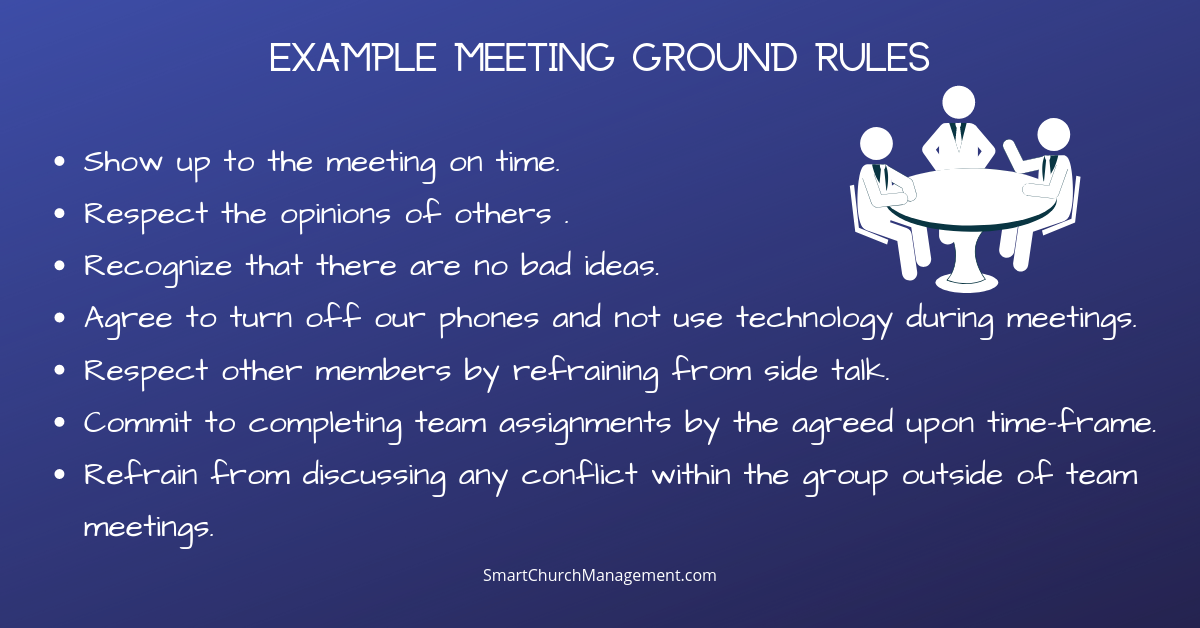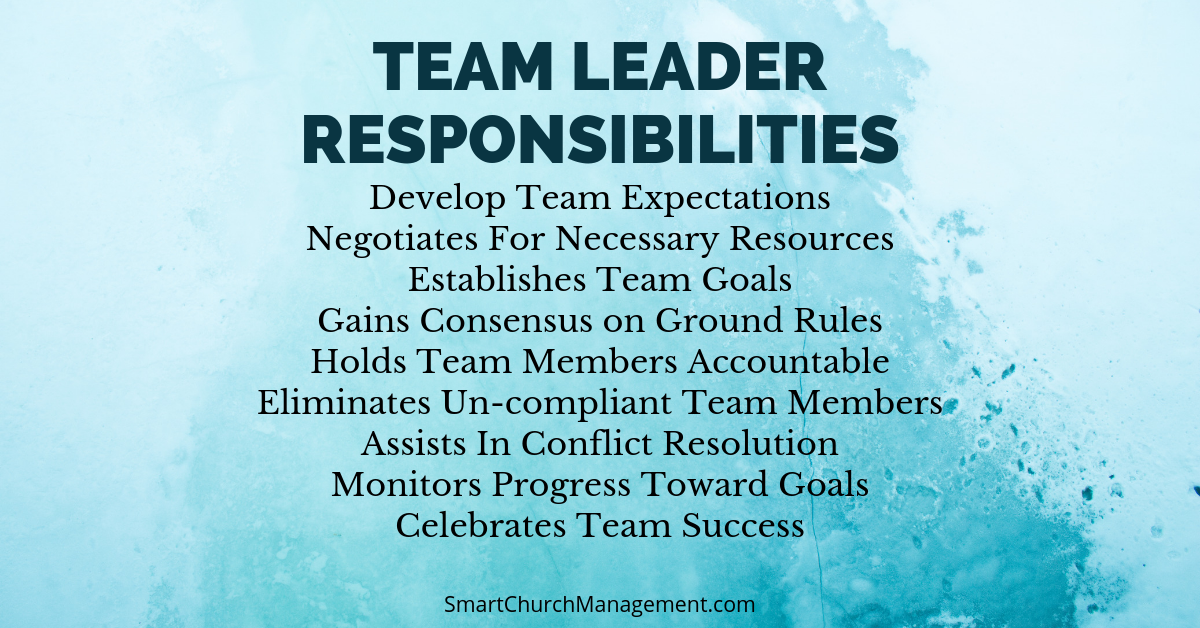Estimated reading time: 5 minutes
Churches use teams in every area of ministry. Think about all of the volunteer groups that make church happen! This is why strong team leadership skills are so essential!
Additionally, internal work teams assist in planning and organizing.
These teams are how work gets done and contribute to the organization’s success.
Leadership
Influencing a group of people to work together in harmony is what leadership is all about.
Teams should have a designated leader who helps facilitate the team process.
The leader plays a vital role in a team environment, influencing the team’s ability to accomplish its goals.
However, ineffective leadership can make the team feel discouraged, defeated, and unsuccessful.
Developing team leaders requires learning specific skills and understanding their responsibilities so they can successfully help their team accomplish what it was tasked to do.
6 Examples of Team Leader Skills
1. Teacher
Team leaders need to have a good understanding of team dynamics.
Their job is to teach and guide the group through the common stages of team development: forming, storming, norming, performing, and transforming.
They do this by making the team aware of the natural obstacles to team performance and helping them move from one stage of team development to the next.
2. Big Picture Thinker
The team leader needs to be able to see the big picture and understand how the team’s work aligns with the church’s goals and strategy.
Through this lens, the leader keeps the group focused on the team’s charter and goals.
3. Coach
The team leader coaches and instructs members on appropriate team behaviors.

They are skilled at conflict resolution, reinforce team ground rules, and encourage members.
This coaching is done while keeping the process moving toward the shared goal.
4. Negotiator
Successful team leaders are great negotiators.
They take responsibility for the team and negotiate with senior leadership to ensure the team has the necessary resources (people, time, and money) needed to accomplish their goals.
5. Communicator
Team leaders are tactful communicators who are comfortable providing constructive feedback to the team and its individual members.
This is important because appropriate feedback helps resolve conflicts and problems and builds trust among team members.
6. Conflict Resolution
Team leaders understand team dynamics well and recognize that conflict can be healthy, provided it is managed properly.
They confront interpersonal team issues and work toward finding win-win solutions.
Team Leader Responsibilities
Gains Consensus on Ground Rules
A team leader helps to establish and gain consensus on team ground rules. He/she also encourages fair play with team rules and ensures all team members are held accountable for their actions.

Develop Team Expectations
The team leader collaborates with leadership on team development by creating a team charter that provides the team with focus and clarity on its objectives.
The leader then helps the team develop SMART goals with identified accountability and timelines for completion.
Lastly, the leader communicates team expectations for achieving the team objective through the completion of goals.
Assists in Conflict Resolution
The team goes through several stages of development that include forming, storming, norming, performing, and transforming.
During this process, conflict can arise. A team leader will help the team systematically work through conflict by facilitating a conflict resolution process that educates them on how to solve problems constructively.
Establishes Team Goals
A team charter is what steers a team’s efforts. To achieve team objectives, there needs to be very specific (SMART) goals. A team leader helps the team establish actionable goals that provide clear objectives and target deadlines.

Negotiates for Necessary Resources
Teams require resources to accomplish their charter. Whether that resource is people (to do the work), time (for members to perform tasks), or money (budget dollars) to purchase necessary supplies and equipment, teams need resources.
The team leader assists by negotiating with leadership to gain a high-level commitment to providing the necessary team resources.
Holds Team Members Accountable
Teams are only as effective as their ability to accomplish tasks. Team leaders ensure the team members understand their expectations for completing goals, adhering to ground rules, and completing team assignments on time.
Eliminates Uncompliant Team Members
Team leaders spend time developing teams, but there are occasions when team members simply don’t play by the rules.
While this is a rare occasion, team leaders must be able to make tough calls and eliminate team members who hinder the team’s progress by not adhering to ground rules and failing to meet expectations.
Monitors Progress Toward Goals
Ultimately, getting the job done is what matters most. A team leader will review and monitor the team’s progress toward goals.
This includes reminding the team of key milestones and holding members accountable for achieving tasks by predetermined timelines.
Celebrates Team Success
Accomplishments should be celebrated! Teams work hard, and a good team leader will recognize significant achievements and ensure the team celebrates successes.
Whether a team is defined as a departmental workgroup, a special project team, or a group of volunteers working toward a common goal, if team members understand what is expected of them (goals), have the time, tools, and training to do their job (resources) and are rewarded for doing a good job, you will have a healthy, happy and productive team!
How well does your organization manage teams?
We Have Done The Work For You!
Access our growing library of church forms, documents, and job descriptions! See what is included here!



